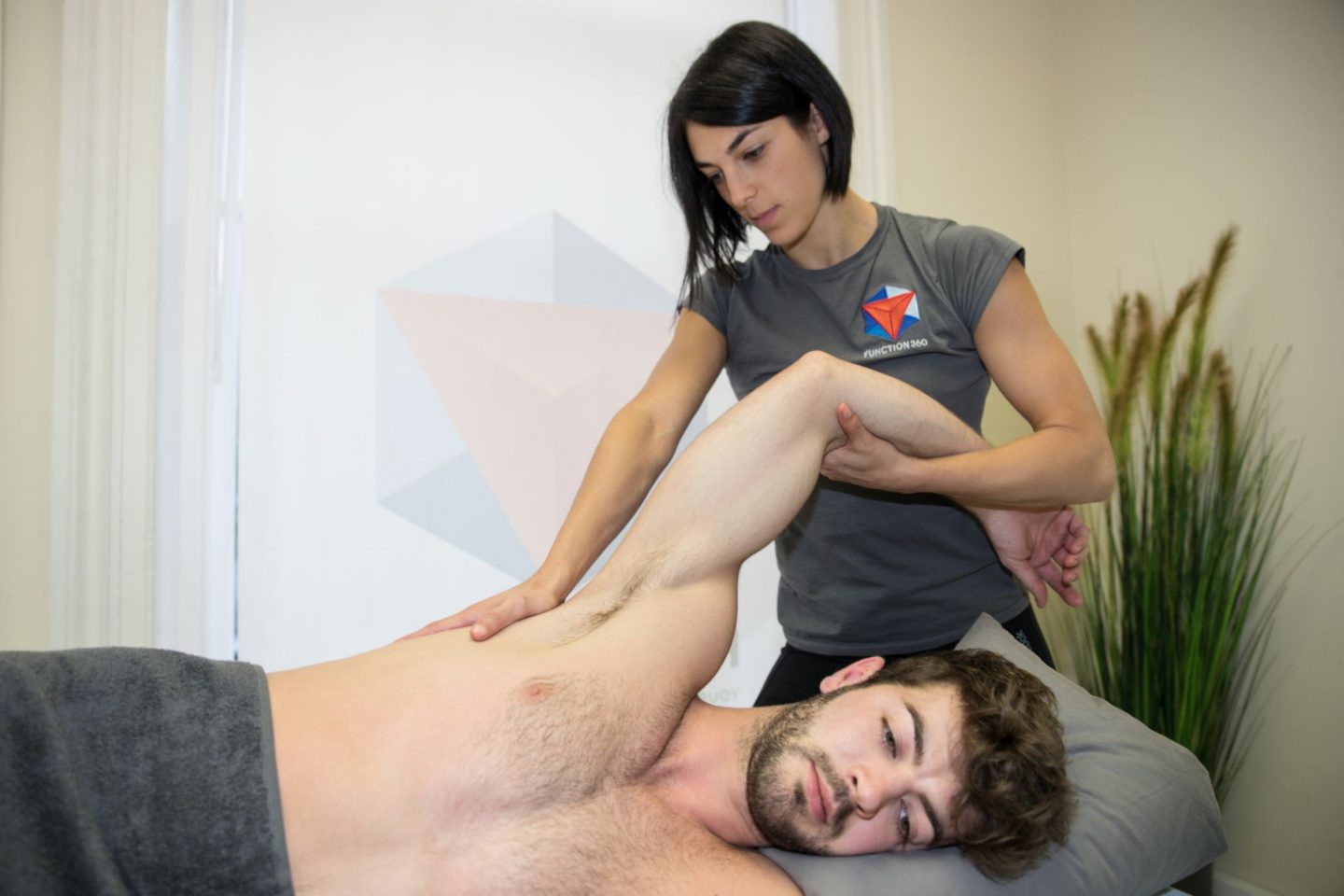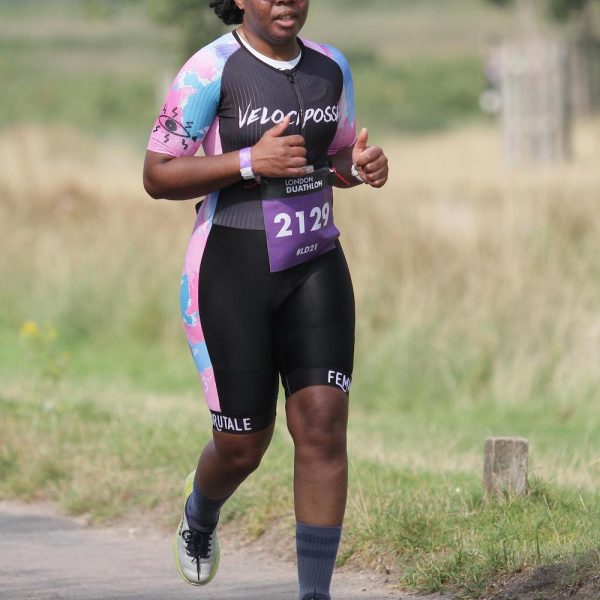
If you’re already a qualified Fitness Professional, like me or you’re looking to join the industry then becoming a Sports Therapist might have been on your radar already.
It seems however that it’s a contentious issue being a Sports Therapist in comparison to a Physiotherapist; initially, I was going to write a post about how to become a Physio if you were already a Sports Therapist but then I saw a conversation on LinkedIn where one Sports Therapist turned Physiotherapist shared that…
“I do not see the need for a comparison or cross reference. I would say that Sports Therapists need to promote themselves for what they do, not how they differ or are similar to another service provider.”
…and there in lays my inspiration and angle for this post. I also asked Sonia over at Function360 (Central London) and Modestas over at Clinic4Sport (West London) who are both Sports Therapists to share some of their thoughts and experiences with me.
Why Become a Sports Therapist
According to the Society of Sports Therapists, “Sports Therapy is an aspect of healthcare that is specifically concerned with the prevention of injury and the rehabilitation of the patient back to optimum levels of functional, occupational and sports specific fitness, regardless of age and ability.”
For Sonia, having been an athlete all her life she wasn’t feeling like herself in an office job and decided to make a career change. She says “I wanted to work in sport but didn’t feel the Personal Trainer route was the best option for me.
I always had an interest in injury recovery after having to end my own sporting career through injury. From there I gained more interest in mobility and movement training while training in Crossfit and began to look at all the options; my first choice was Osteopathy but it’s a long course and I wanted to get out of the office environment ASAP!
Sports Therapy had the option of shorter courses and to work straight away so that’s where I started!”
How To Qualify As a Sports Therapist
It became abundantly clear that there are a number of routes into Sports Therapy. Sonia completed her L5 Diploma in Advanced Clinical Sports Therapy which took 15 months and is currently undertaken her Masters in Osteopathy whilst Modestas completed a BSc (Hons)in Sports Therapy over 4 years (full time, including a foundation year).
Protection of title does not exist for Sports Therapy (ST) which means that legally, anyone could call themselves one. It appears that ST is not as highly regulated as Physiotherapy so if you complete a degree course, you should ensure this is made clear on your employment records (Graduate Sports Therapist on your CV, LinkedIn etc) and use the letters you’ve attained after your name… i.e BSc.

Finding Work After You Qualify
Both Sonia and Modestas have been working as Self Employed Contractors since qualifying. Modestas began working as a masseur during the 4th year of his undergraduate degree. He then began working as a practitioner (Sports Therapist) once fully qualified after graduation.
Sonia began working for herself after qualifying and says that referrals are what drives business; if you take care of your clients, business can build up quickly even in a saturated market like London.
Although Sonia now works as part of Function360 Physiotherapy she has always run her own business working with clients an average of 20hrs/week in addition to administration tasks. Modestas also says he works on average 20-25hrs per week with a gradual increase.
Ensure You Continue to Develop Professionally
I would like to think this one goes with out saying? CPD; continued professional development is a must in most industries. As a Sports Therapist there are many other forms of treatment that you can add to your repertoire to help you to gain more work and experience.
For Sonia, Sports Massage was included in the first part of her Sports Therapy Diploma and she has since gone on to complete other CPDs, one of them in Medical Acupuncture (Dry Needling). Modestas has also completed his CPD in Dry Needling and gained his Sports Massage Qualification as part of his Bachelors Degree.
Should You Train As a Sports Therapist or Physiotherapist?
I’m not posing the question of difference here; I’m more interested in them as professions and how to decide which route is the right one for you. Some Sports Therapists feel that their qualification is somewhat restrictive when looking to get into the workplace and many have gone on to qualify as a Physiotherapist.
Modestas says he feels “physiotherapists are more respected and better acknowledged by Governing Bodies in the UK and abroad”. He also shares that “To my knowledge, Physiotherapists are more knowledgeable when it comes to rehab after incidence like strokes or heart attacks or any other cardio-respirotary problems. I do believe that regarding the musculoskeletal injuries we have very similar understanding of the physiology of tissue healing and rehab / prehab concepts”. Sonia says “Sports Therapists treat musculoskeletal complaints only whereas Physios are trained under NHS standards and their remit is wider”.
If this is the route you choose, your knowledge gained from Sports Therapy should stand you in good stead, if not be an advantage when undertaking your Physiotherapy degree. This can be a costly route though especially as University fee’s are at an all time high.
I believe there are a few courses available at Masters level which would allow you to qualify as a Physiotherapist having not done Physiotherapy at Undergraduate level. However, these course are also very costly and intensive.
Whichever route you choose for your degree, both courses require you to study hard to get your final qualification.
Ever thought of becoming a Sports Therapist?
Elle





![Finally feel ready to add running back into my repertoire 🥰 starting with couch to 5km of course… goal being to actually finish it for once 🫠 today I started week 2 👉🏾 slide 3, joined by Ian who found my little Loughton meet up (which I started back in 2021 I think) via a takeover I did on @strava 🙌🏾To keep me on track, I’ve signed up for Hackney 5km (it’s an annual tradition now) and the @thelondon10k in July (⚠️ entries are still open friends!)Let’s connect on Strava? Comment Strava below and I’ll send you my link, you send me yours back ✨[running the 10km on a media bib]#couchto5k #runwalk #keepitsimpelle #runninggoals #strava #stravarunning #thisgirlcan #thisgirlcanrun #thisgirlcanessex #fitnessjourney #buildingabase](https://www.keepitsimpelle.com/wp-content/plugins/instagram-feed/img/placeholder.png)

Leave a Reply